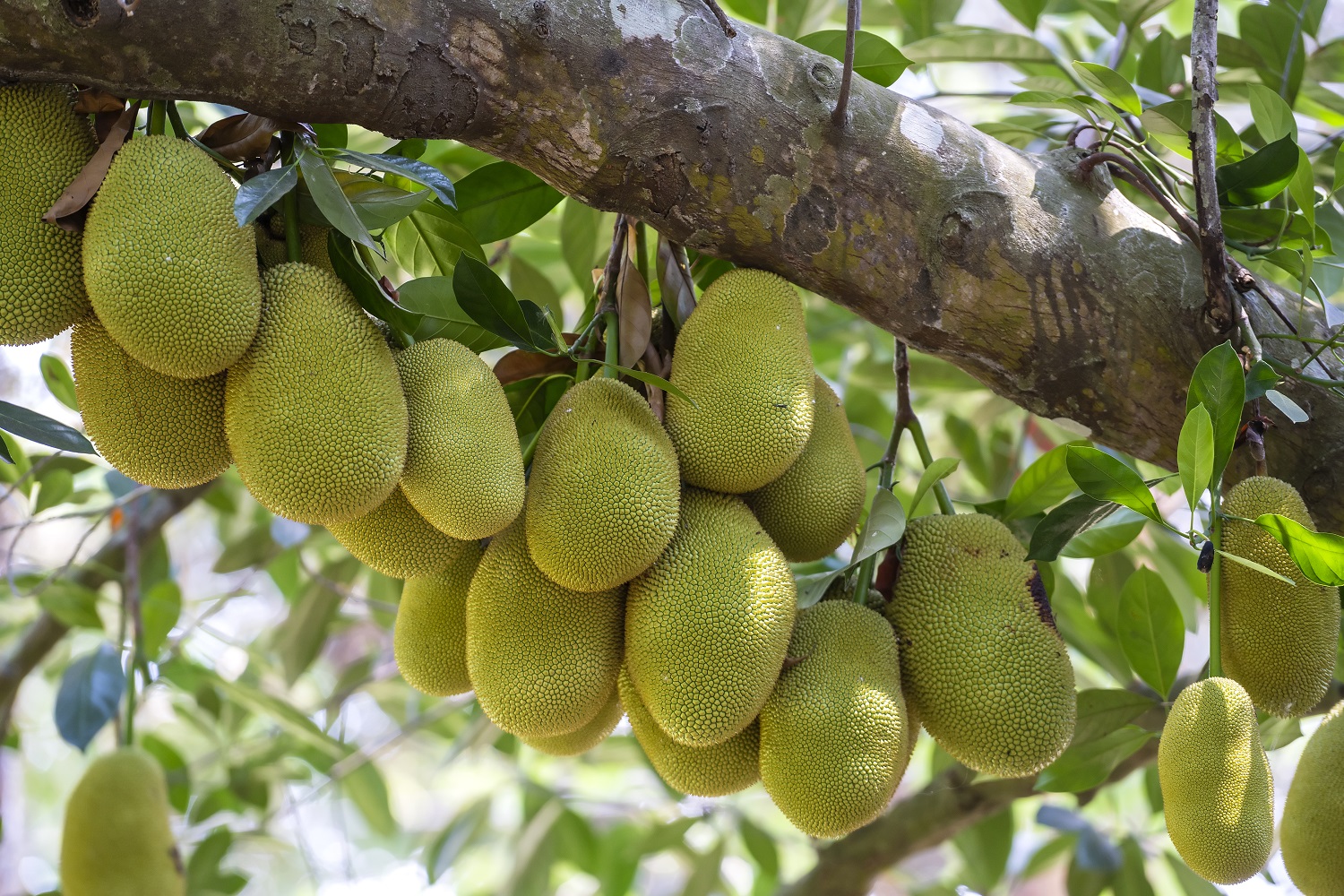The large jackfruit that grows in our garden, seems to have become the cynosure of all eyes in the neighbourhood. Since it is a seasonal tree and bears fruit once in a year, it gets a regular audit from our neighbours – “Are there signs of fruits this year? How many do you think? Last year we had 10 and relished the experience during the lockdown”, so on and so forth.
During the monsoon last year, when we were all struggling to cope with the pandemic, the jackfruit tree was the topic for discussion, providing much needed succour to online-heady children, parents and grandparents. The flip side was that those who would get their annual share – such as the plumber, local realtor, newspaper man, maid, gardener – were grouchy and complained to me, that they were not given their bounty. I apologized saying due to lockdown restrictions it was not possible to call them or send them through my house help, who usually did the honour of cutting and dividing the fruit, and then deciding which house on the street gets what size of the jackfruit. She also keeps it in mind that a particular neighbour had, the previous year, made a comment about the lack of sweetness in the fruit of a particular batch and hence decides to halve that neighbour’s share!

Since most of the homes on our street are owned and inhabited by south Indian families, who relish and understand how to use the fruit, it is a pleasure to hear them discuss the recipes. The Mangalorean family uses the leaves to steam idlis, the Tamilian family makes a crispy fry out of the seeds and the Kannadiga family relishes the fruit as it is, while the Kodava family makes a dessert called ‘koole puttu’, which is a sweet idli-like dish made with jackfruit ground into a batter along with coconut, jaggery, cardamom powder and wrapped in turmeric leaves while steaming. The Malayali family also loves every part of the fruit.
Then there are a few families from Gujarat, Haryana, UP and MP, who do not know what to do with the fruit, so they look apologetically and say, “we don’t like the strong smell”. Well, our house help almost snatches it back from them – as she already has someone else in mind to give this piece to – the BBMP worker who sweeps our street and has been complaining about how the fall season created a carpet of dry leaves on our tree-lined avenue. So, she must get a share of the jackfruit and we must remind her that she relished the fruit if she complains about the dry leaves that she has to sweep again!
The neighbours are so possessive about the fruits, when they appear, gradually larger and larger – that they spend hours during their evening walks dissecting whether the fruit is ripe enough to be taken off the tree. “Not yet, the thorny outer skin has to become less poky, that’s a sign of it being ripe; the smell of the jackfruit needs to be felt everywhere, till that happens, do not pluck it from the tree,” signals another. Last year, my father got a phone call when he was away for a long duration from our neighbour, who said, “The jackfruits are over-ripe, they may get rotten, should we pluck them and distribute?” “Sure! Go ahead,” says my father – who has other things on his mind. The jackfruits are the least of his concerns, having been brought up in an environment where jackfruit trees, mango trees, sapota trees, pomegranate and guava trees were brimming with fruits. He merely tried to replicate this in the city house – who knew it would become a show stealer?
(Dr. Deepti Ganapathy is Visiting Assistant Professor, Centre for Management Communication, IIM Bangalore.)
